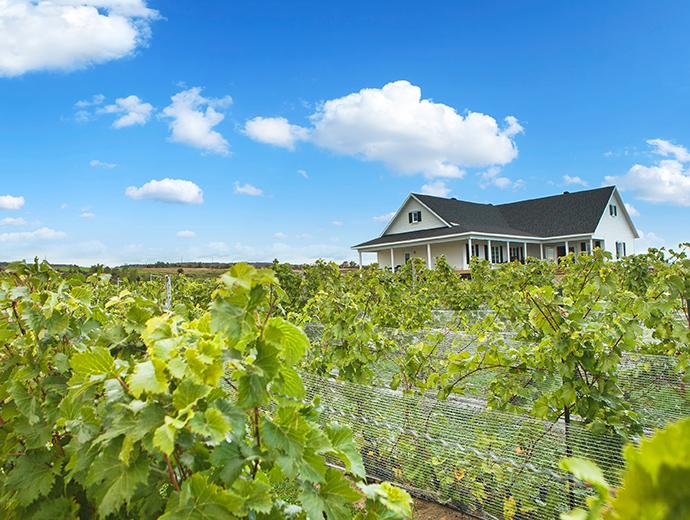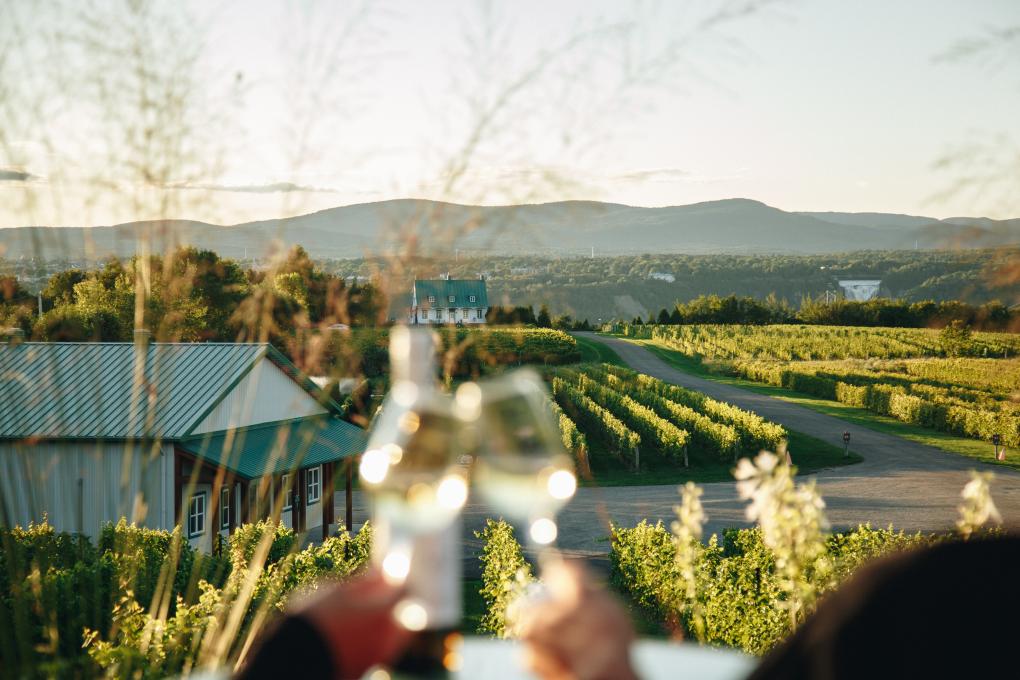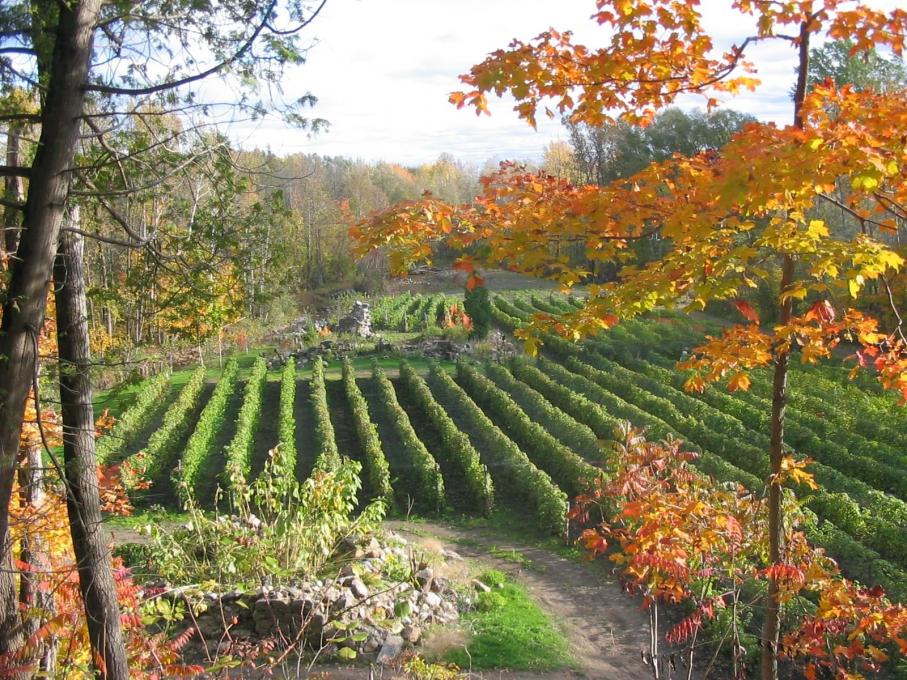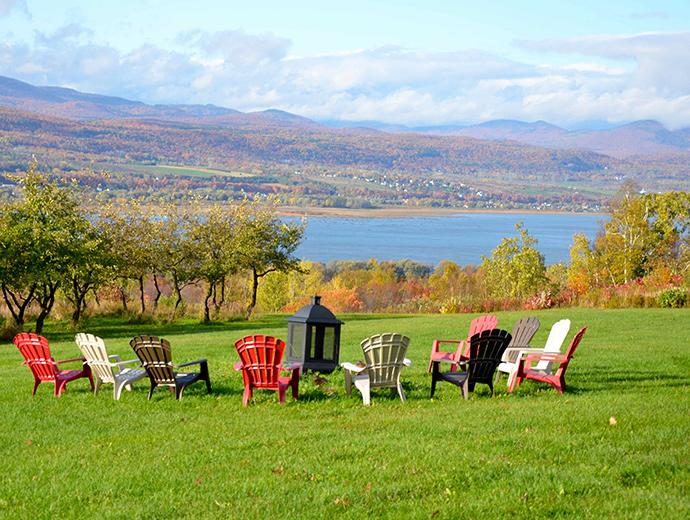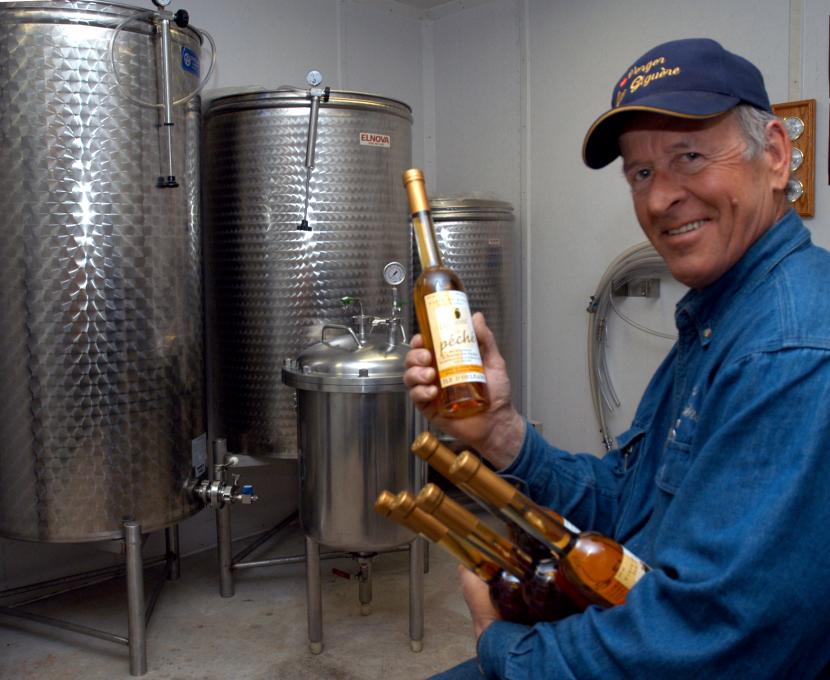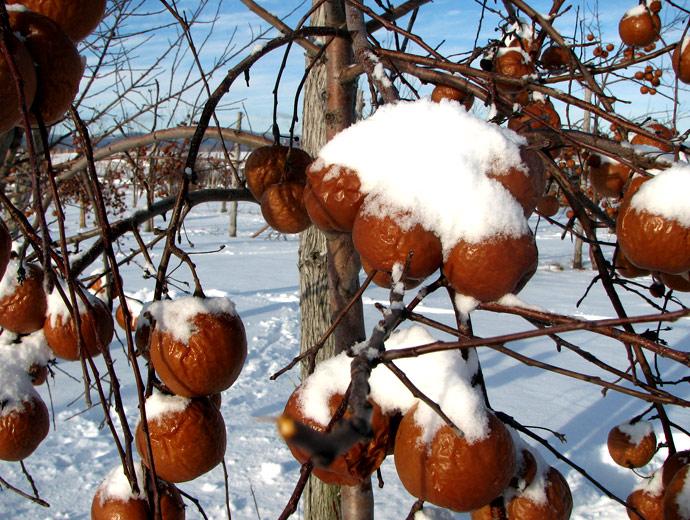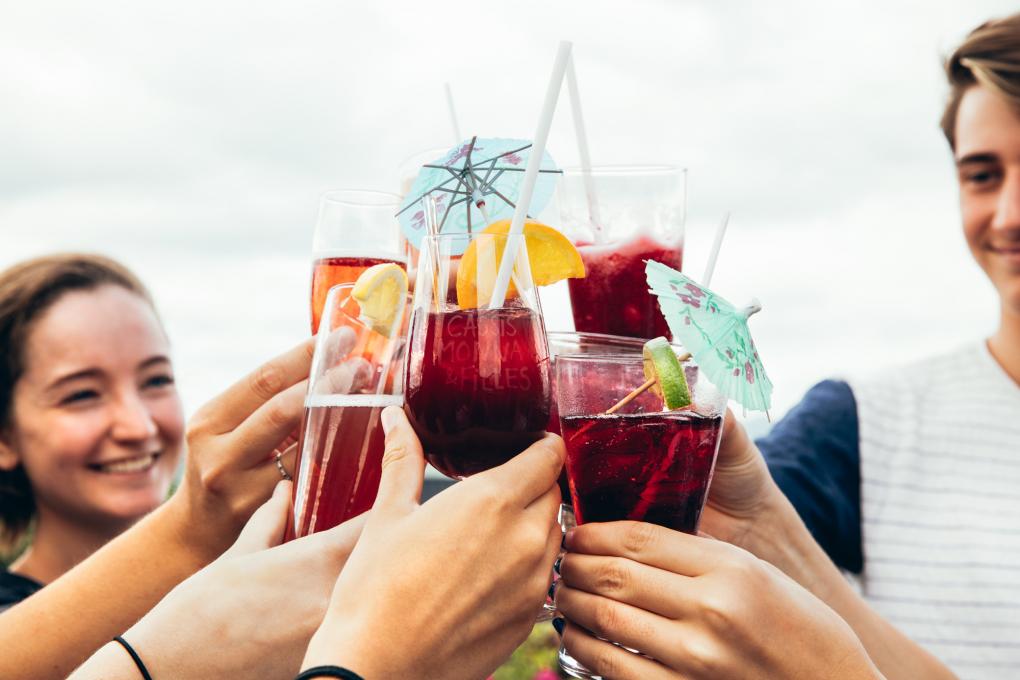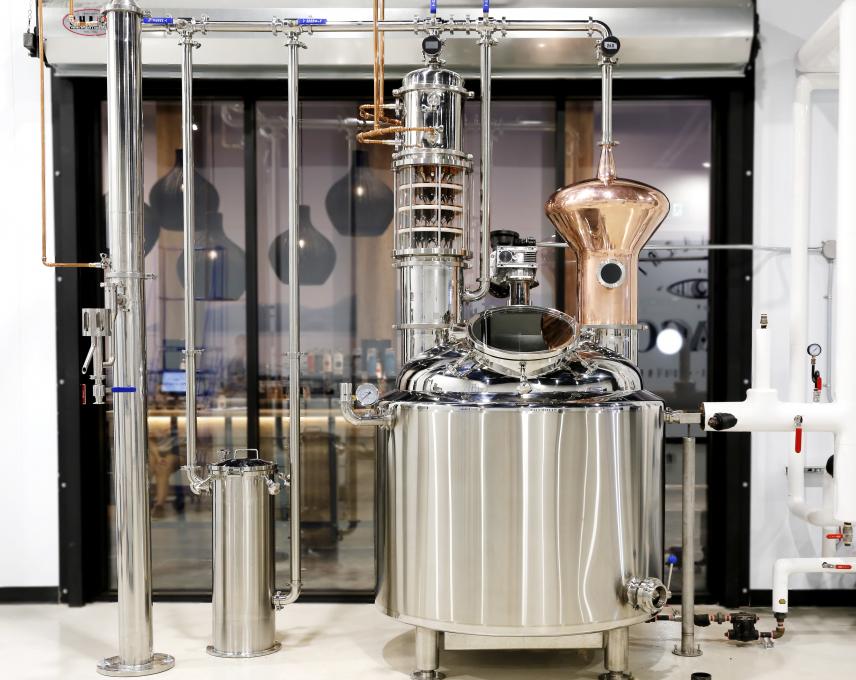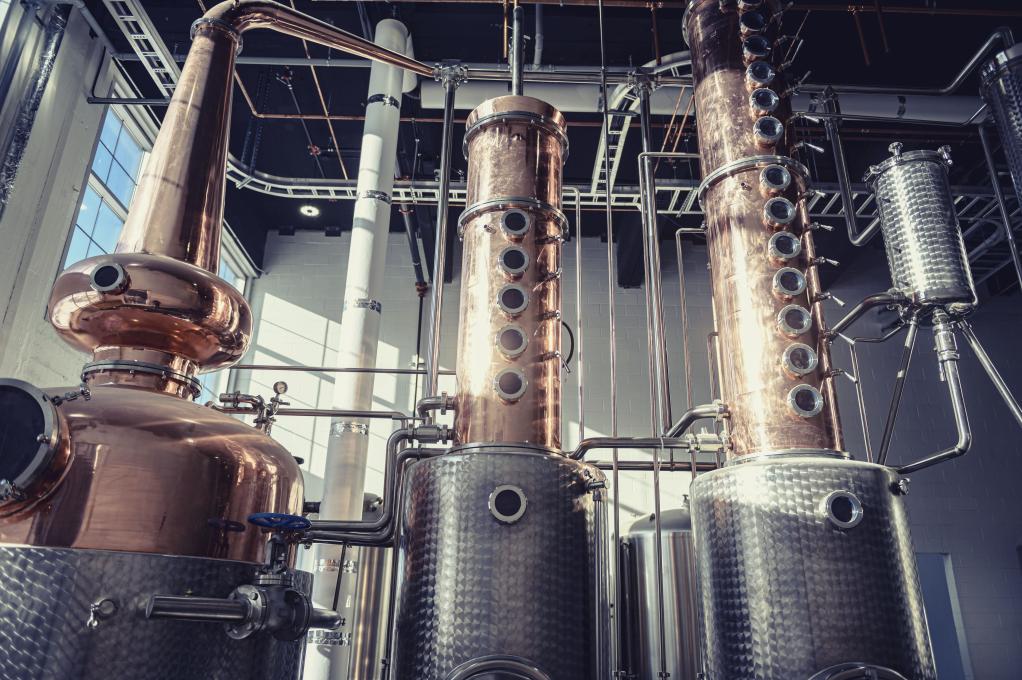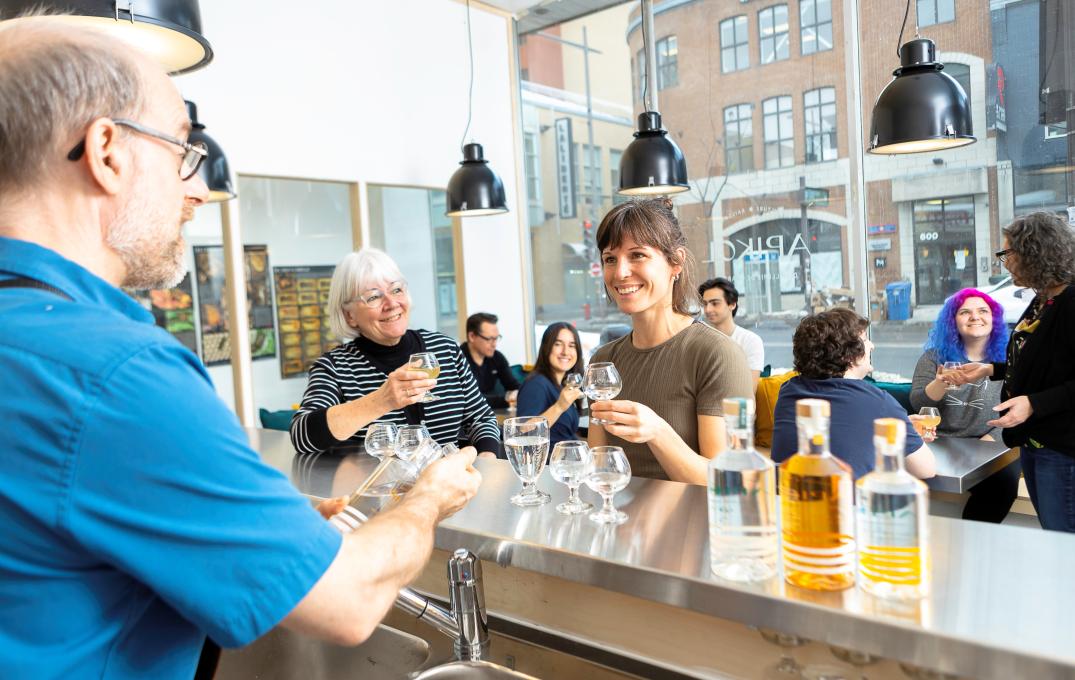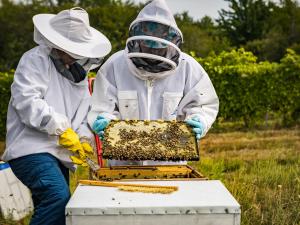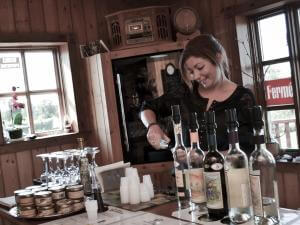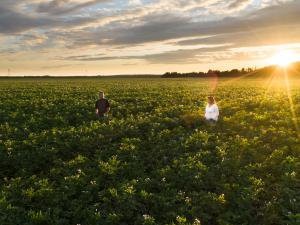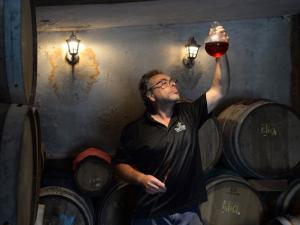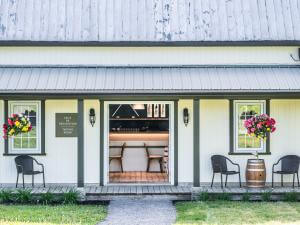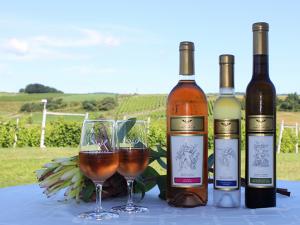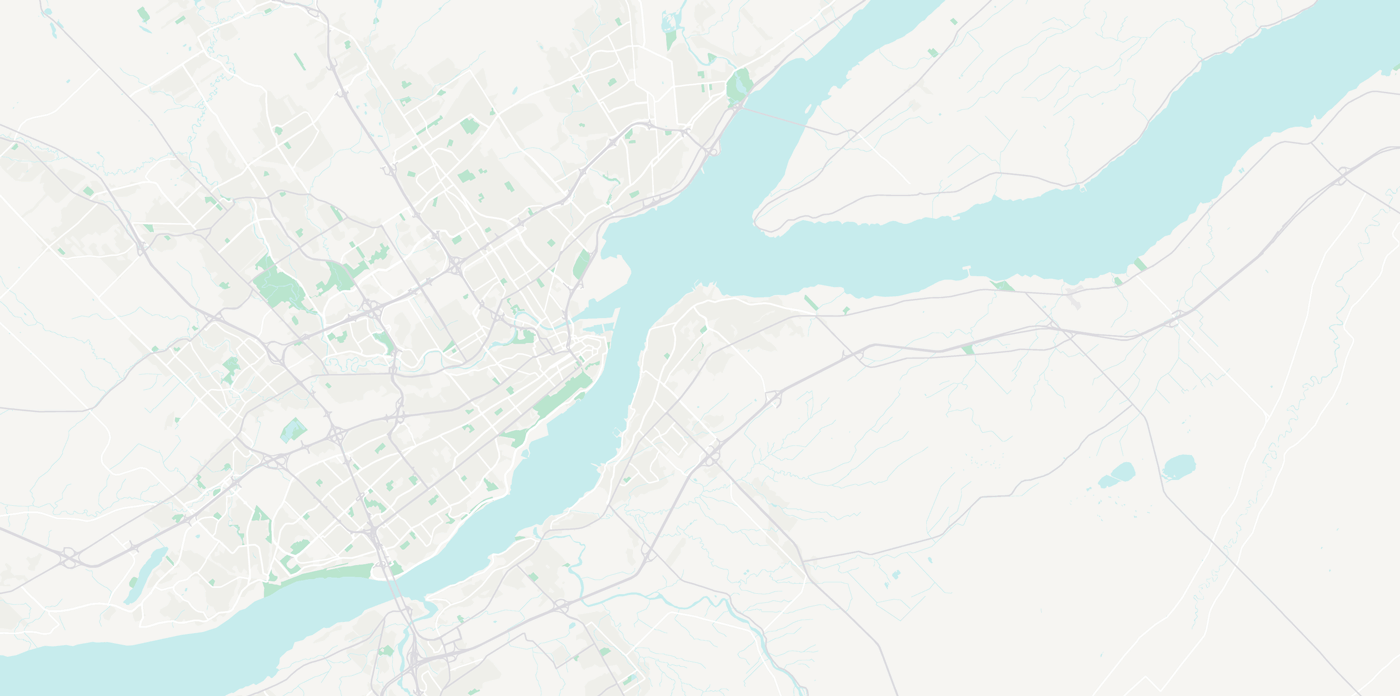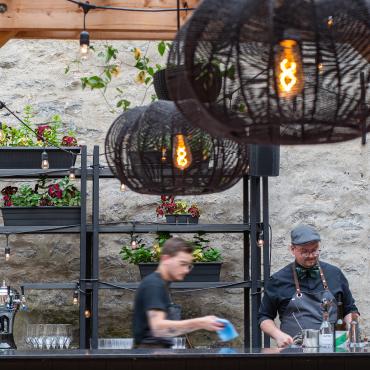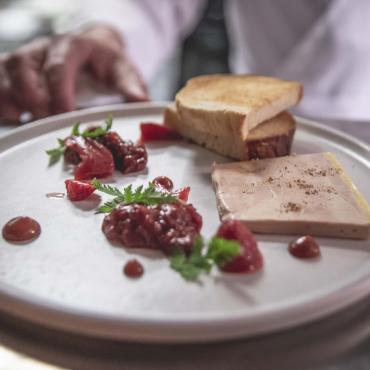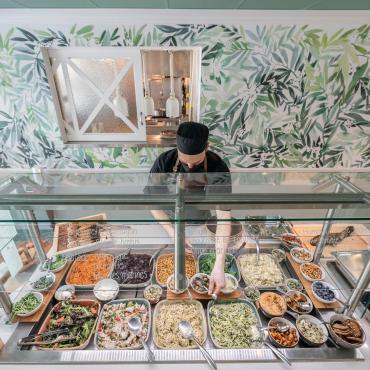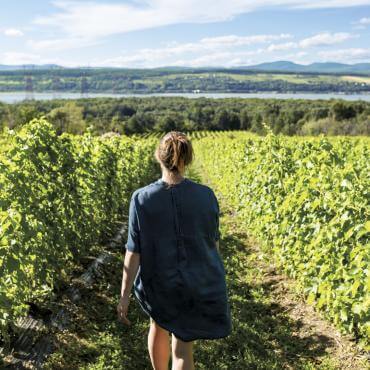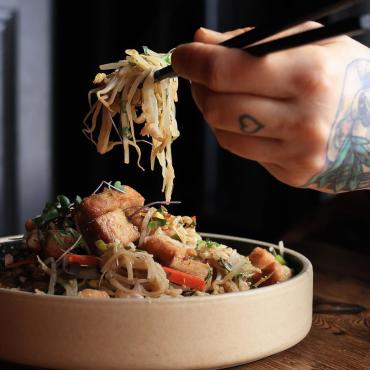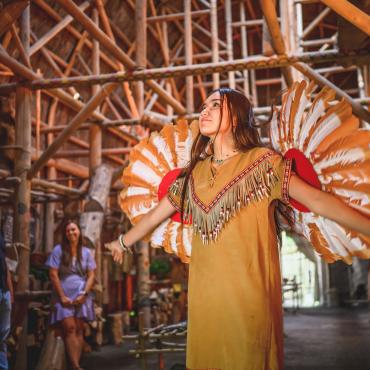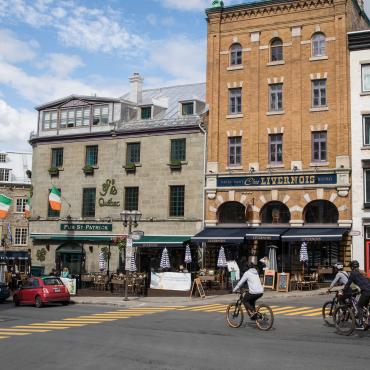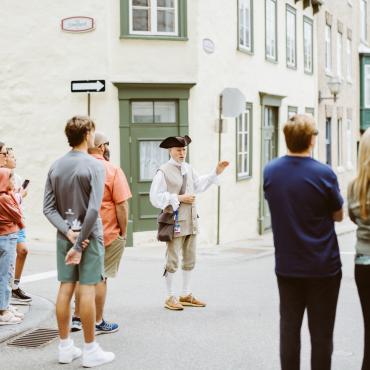Wineries and Local Liquor Producers
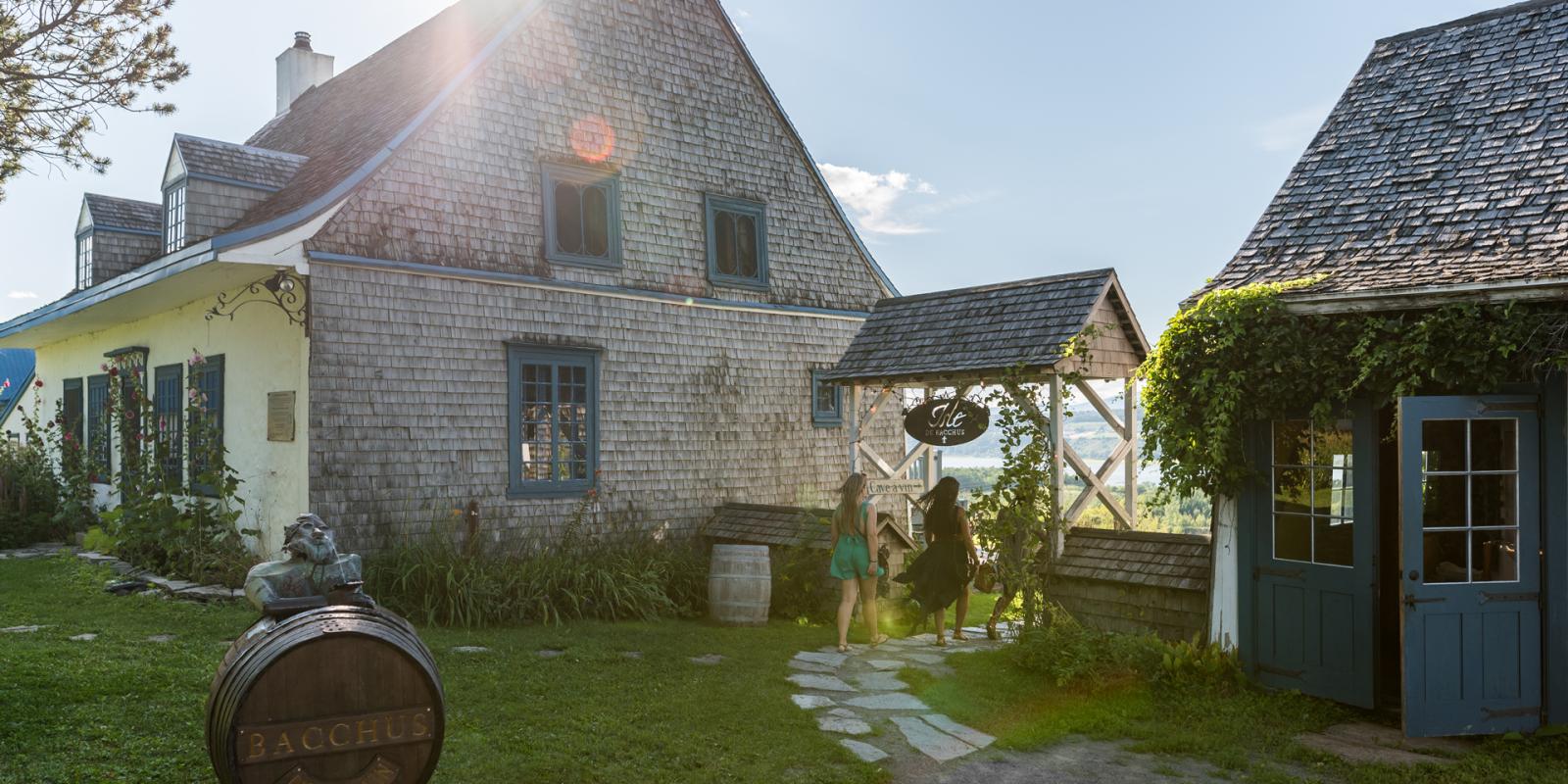
Known for its gorgeous scenery and rich history, the Québec City area also produces an appealing array of wines and liquors. Add them to your list and make a plan to sample some of the local wines, ciders, gins, icewines, and other alcoholic beverages on your next getaway.
Wineries
Île d’Orléans was dubbed the “Isle of Bacchus” in 1535 by none other than Jacques Cartier, who invoked the Roman god of grapes and wine after noticing the profusion of wild vines growing on the island. Today Cartier’s words seem prescient: the island is home to a number of successful vineyards, with more on the Beaupré shore opposite the island and in the Portneuf area.
Through the years, Québec winemakers have learned to work with the local soil and climate to find the grapes best suited to this northern terroir. Their wines are often produced with hardy and semi‑hardy grape varieties developed by crossing well‑known European strains with their New World cousins. These hardy and semi‑hardy grapes are more resistant to disease and intense cold and better adapted to Québec’s short growing season. So in the end, the rigours of the Québec terroir have given local winemakers the opportunity to create unique wines and icewines.
For the beauty of their surroundings and the quality of their wines, the following vineyards are well worth a visit:
Vignoble Ste-Pétronille
A veritable Île d’Orléans institution, Vignoble Sainte‑Pétronille is a gorgeous vineyard on 22 acres of prime island land. Tastings are followed by a guided (or self‑guided) tour of the grounds to learn more about the winemaking process. If you’re there in the summer, cap off your visit with a glass and a meal at their restaurant.
Vignoble Isle de Bacchus
Isle de Bacchus is the oldest vineyard on Île d’Orléans. Set in an enchanting location, it boasts a vast selection of wines and local products to sample and a charming bistro where you can pair your selections with a cheese and charcuterie board.
Saint Pierre Le Vignoble
Saint Pierre is a self‑styled Nordic winery that opened on Île d’Orléans in 2019. Offering excellent wines and a picturesque location, it’s the perfect place for a romantic or family picnic.
Vignoble Domaine L’Ange-Gardien
Located just 20 minutes from downtown Québec City on a Côte‑de‑Beaupré hillside, Domaine l’Ange-Gardien is the brainchild of two friends who, in 2007, dared to make their dream of becoming winemakers a reality. The winery does tastings and is also available to rent for weddings and family reunions—an offer made particularly tempting by the beauty of the surroundings!
Vignoble Domaine des 3 Moulins
Domaine des 3 Moulins is a charming country vineyard in Portneuf—the only one in the area. Stop by the estate to sample the delicious fruits of their labours. The wines and the estate take their name from the three historical mills (moulins) that once stood along the Matte River: a carding mill, a grain mill, and a sawmill.
Considering the selection of classic wines at the five vineyards mentioned above, here are the main varieties you’ll find in the Québec City area:
Acadie, Vidal, Vandal-Cliche, Frontenac blanc, Radisson, Maréchal and Sainte-Croix.
Getting in on Crush Season
If you’re a wine lover, you probably know that wine grapes are harvested by hand during what’s known as crush or harvest season (les vendanges in French). And Québec vineyards are no exception to the rule. Some even invite the general public to pitch in during the September and October harvest. Of course, harvesting grapes is physical work. But your efforts will be rewarded by a meal and a glass or two of the vineyard’s wines from previous years. It’s a chance for travellers and locals to lend a hand in the creation of local wines through a festive communal event. Each winery has its own way of organizing crush season, so check their respective websites to book your spot.
Québec’s Famous Icewine
The process for making icewine is perfectly suited to Québec’s northern climate, since it uses the cold and the freeze and thaw cycle to its advantage. The grapes are harvested frozen, usually during the cold days of December (-10 °C or 14 °F), to make sure they’ve gone through several temperature cycles. As the grapes freeze, thaw, and re freeze, they’re essentially cooked: their water content drops and their sugar content goes up, creating an explosion of flavours.
Québec Icewine became an officially regulated term on December 30, 2014. To qualify as such, it must be made from grapes that have frozen naturally on the vine. The authenticity and geographic origin of Québec Icewine are guaranteed by strict standards and controls.
Wondering what goes with icewine? Think of it as a dessert wine. Being sweet, it pairs very well with cheeses and desserts. Although characterized by a high concentration of residual sugars, it has a nice acidity that keeps the overall flavour balanced.
Where to find certified icewine in the Québec City area:
- Vignoble du Mitan: Le Verglas
Other wineries in the region use similar techniques to produce similar wines that aren’t certified, such as the -8° C from Vignoble de l’Isle de Bacchus and the Vin de glace from Domaine L’Ange Gardien.
Cideries
In addition to its excellent vineyards, Île d’Orléans is famous for its cider breweries. In the fall, visitors and locals flock to island orchards to pick apples and sample delicious ciders.
Cidrerie Verger Bilodeau
Cidrerie Verger Bilodeau is a family cider brewery whose reputation speaks for itself, with multiple gold medals at the Desjardins consumers’ choice awards and the Coupe des Nations wine competition. You’ll find their impressive selection of ciders—maple cider, hard and soft cider, sparkling cider, ice cider, and more—is rivalled only by the warm and friendly welcome they offer visitors.
Domaine Steinbach
Located 15 minutes from Québec City, Domaine Steinbach is a major producer of cider and terroir products in the region. Stop in to have a glass and enjoy the view from their fabulous patio or head out into the orchard for a picnic.
Québec’s Famous Ice Cider
How is ice cider made, you ask? In the fall, once the apples are fully ripened, they’re harvested and the juice, or must, is extracted. The must is stored outside all through the cold winter months to increase the concentration of natural sugars. After that, it’s fermented at low temperature for several months. The final product is a liqueur‑like alcoholic beverage that’s both sweet and tart. Most of the ice ciders you’ll find on the market are made using this technique, which is called cryoconcentration. Others are made from apples that are left to freeze on the tree and then pressed. This technique is called cryoextraction. Being riskier, it’s less widely used.
How do you drink ice cider? For an optimal tasting experience, ice cider should be served cold, either on its own as a pre‑dinner drink or paired with a dessert.
How long does ice cider last? Usually between 5 and 10 years.
Where can I find the best ice ciders in the Québec City area:
- Vignoble Domaine L’Ange-Gardien: Pomme glacée, winner of a gold medal at the 2010 Coupe des Nations wine competition
- Cidrerie Domaine Steinbach: Cristal de glace
- Cidrerie Verger Bilodeau: Nectar de glace
- Vignoble Domaine Sainte-Famille: La cuvée des ti-coqs, winner of 15+ medals
Berry Liqueur Producers
 Virginie Gosselin
Virginie Gosselin
The abundance of black currants, strawberries, raspberries, and blueberries on Île d’Orléans has given rise to numerous fruity creations, including liqueurs and terroir products.
Cassis Monna & Filles is a family‑owned business that pioneered berry liqueur in the province. The Monnas have been making their delicious black currant liqueur and “cultivating the art of indulgence” for five generations, with Catherine and Anne Monna now at the helm. The estate boasts a cellar and fine foods shop, a mini liqueur museum (La liquoristerie), a restaurant (La Monnaguette), and a summer ice cream parlour. You’ll find an impressive collection of black currant alcohols and a variety of other delicious products, like black currant jellies, jams, condiments, and candies.
Québec Distilleries
The past few years have seen a mini boom in spririt production in Québec. Commonly made using ingredients from the boreal forest, Québec spirits are known for their unique flavour profiles. Some distilleries offer tours of their facilities:
Distillerie Stadaconé
Named in honor of the Iroquois village visited by Jacques Cartier in 1535, this distillery stands out for its immersive experience. Visitors can engage in a challenging escape game before tasting exquisite spirits.
Distillerie Arsenal & Co
Located in a former ammunition factory, this distillery offers tours accompanied by expert guides, providing an intriguing insight into the art of distillation.
Ubald Distillerie
A visit to Ubald Distillerie reveals that the grains used for their spirits are grown directly on their land, ensuring exceptional product quality.
Honey Based Alcohols
 Apikol
Apikol
![]() Located in the heart of Saint-Roch, Apikol offers a whole range of alcoholic products made from 100% pure honey, including vodka, gin, mead and brandies. By visiting this neighbourhood distillery, you will meet craftsmen practicing sustainable beekeeping who are part of an exemplary eco-responsibility approach.
Located in the heart of Saint-Roch, Apikol offers a whole range of alcoholic products made from 100% pure honey, including vodka, gin, mead and brandies. By visiting this neighbourhood distillery, you will meet craftsmen practicing sustainable beekeeping who are part of an exemplary eco-responsibility approach.
Where to Buy Québec Liquor
In addition to the many wines, ciders, and gins made in Québec, the province also produces maple liqueur, vodka, and whisky. Most of these are available directly from producers as well as at select SAQ locations and specialty grocery stores.
In Old Québec, you’ll find local products at Marché d’Emma. Le Grand Marché de Québec also have a good selection of Québec beer, wine, cider, and spirits. And most SAQ locations carry a selection of locally produced alcoholic beverages.

